Judaism
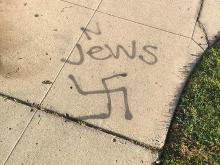
Violent anti-Semitic attacks in the U.S. rose 50 percent last year. According to the Anti-Defamation League, there were a total of 56 against Jewish victims.
“And we know that for every incident reported, there’s likely another that goes unreported,” said Jonathan A. Greenblatt, CEO of the ADL, which produced the study and calls the trend “very concerning.”
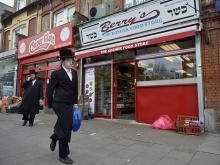
Swastikas found in a children’s playground in London are the latest sign of anti-Semitism on the rise in Europe.
The hand-drawn swastikas appeared on four consecutive days, June 14-17, in a park in the Stamford Hill neighborhood, The Guardian newspaper reported June 20. A home for British Jewish veterans is nearby.
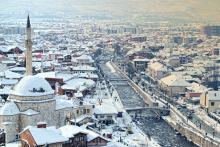
Three years ago, Joshua Stanton was walking around Peja, a Balkan city where the skyline is punctured with the dainty minarets of three historic mosques, when he decided to put on his yarmulke.
“I am Jewish,” he thought. “I want to put it on.”

While many countries in Europe have sealed their borders to refugees, Germany has done the opposite. Last year, the country registered over 1 million asylum seekers, including 425,000 from ravaged Syria.
No other country in the European Union has accepted as many. For Syrians and others who risk their lives crossing the Mediterranean Sea in rubber dinghies, Germany has become a beacon of hope.

A nearly 900-year-old synagogue recently held its first Sabbath service in decades in one of the diaspora’s farthest flung places: the coastal Indian city of Cochin.
Congregants came from four continents for what could be the last such observance in a region whose once-thriving Jewish communities have mostly migrated to Israel.

Imagine a test on world religions that asks this question: “Who founded Christianity?”
Jesus, right? Wrong.
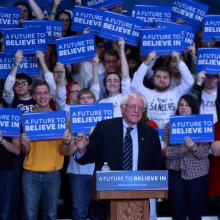
Bernie Sanders’ primary victory in the Granite State Feb. 9 made him the first-ever non-Christian to win a presidential primary in U.S. history. In addition, depending on whether you count Barry Goldwater as Jewish (his ancestors were Jewish but he identified as Episcopalian), Bernie Sanders could be considered the first Jewish primary winner in history as well.

Jan. 27 is International Holocaust Remembrance Day, the date the United Nations has chosen to commemorate victims of the Holocaust during World War II. Six million Jews were murdered by Germany’s Nazi regime, along with 5 million non-Jews who were killed. The anniversary, marked each year since 2005, falls on the anniversary of the liberation of the Auschwitz-Birkenau death camp in Poland by the Russian army in 1945. One million people died there.

The Vatican has said that Catholics should witness to their faith but not undertake organized efforts to convert Jews, a significant step forward in the once tense relations between the two faiths.
The document released on Dec. 10 by the Vatican’s Commission for Religious Relations With the Jews also pushed for greater efforts to fight anti-Semitism.
In its most explicit commentary on evangelization regarding Jews, the document said Catholics should take a different approach to Judaism than to other religions.

As October quickly turned to November, jack-o-lanterns and costumes were replaced by Christmas carols and Internet outrage over holiday cups. Every year we go from Halloween to Christmas with little space carved out for Thanksgiving.
There is no question that Thanksgiving is my favorite holiday. Many times I have remarked that Thanksgiving is one of the greatest days of the year, that I cannot wait to go home, that Christmas needs to wait until December. Come every November, I begin my internal countdown, growing more excited each day closer to this holy holiday.
We often reserve the word “holy” for holidays such as Christmas and Easter, but for a multi-faith family such as my own, a holiday grounded in something more substantial than – let’s say trees for Arbor Day – while still allowing everyone to come with their own religious identity is not only a privilege, but a gift.
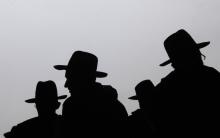
Women who would be Orthodox rabbis were handed a major setback Oct. 30 when the highest religious body for Modern Orthodox Jews ruled against their ordination.
The Rabbinical Council of America officially prohibited the ordination of women, or the use of the term “rabbi” or “maharat” for women, in what it described as a direct vote of its membership.
The prohibition comes six years after the founding of a yeshiva, or religious school, for women in New York City. The school, Yeshivat Maharat, has ordained less than a dozen women who use the honorific “maharat” instead of rabbi and has placed graduates and interns at 17 Orthodox synagogues in the U.S. and Canada.
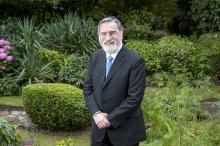
Religious zealots fill newspapers and screens with bloody images of bombings and beheadings. They kidnap children and make them into soldiers. They pray before they rape women.
But “not in God’s name,” says Rabbi Lord Jonathan Sacks, the former chief rabbi of Great Britain, who just published a book by that title.
“The greatest threat to freedom in the post-modern world is radical, politicized religion,” Sacks writes. Religion News Service asked Sacks how people can kill in the name of God, and how religion can counter religious extremists.

My rabbinic colleague, David Saperstein, the U.S. ambassador-at-large for international religious freedom, issued a “glass half full” report earlier this month, noting that “… over the last several years there’s been a steady increase in the percentage of people who live in countries that … have serious restrictions on religious freedom.”
At the same time, he noted, “we’ve seen enormous expansion of interfaith efforts on almost every continent to try and address the challenges.”
Much of that “enormous expansion of interfaith efforts” can be traced to the historic Nostra Aetate (Latin for “In Our Time”) Declaration that the world’s Catholic bishops adopted 50 years ago at the conclusion of the Second Vatican Council.
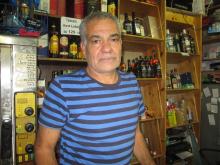
Yossi Cohen was shocked when city inspectors warned him last month to close his downtown convenience store during the Jewish Sabbath or else be socked with fines.
“For 20 years I’ve been open during Shabbat (the Hebrew for Sabbath) and suddenly the city decides I have to close?” said Cohen, one of eight convenience store owners ordered to shut down from sundown Friday until Saturday night.
“The message is clear: The municipality doesn’t want non-religious people in this city.”
The closure order, which faces a court hearing Sept. 16, was part of a compromise that Jerusalem Mayor Nir Barkat recently struck with ultra-Orthodox city council members who threatened to block a movie multiplex from opening on the Sabbath in a secular part of the city unless the convenience stores were shut on the Sabbath.
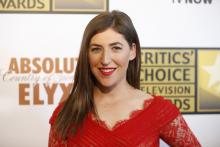
Emmy-winning actress and neuroscientist Mayim Bialik isn’t afraid to speak out about her sometimes-unconventional social views, from writing a book about attachment parenting to criticizing hyper-sexualized celebrities in a recent essay.
Now, she’s talking candidly about religion in entertainment, claiming that “it’s never going to be trendy to be observant or religious in Hollywood circles” in an interview with FOX411.
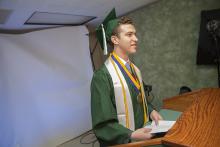
When 2,500 students and their families gather on the upstate New York campus for the Watson School of Engineering graduation on Saturday, Greenberg will still take his place at the podium. And on jumbo screens on either side of the stage, he will watch himself deliver the graduation address he taped in the university’s video studio three days earlier.
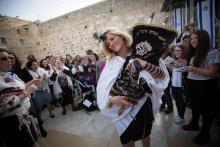
For the first time in its 26-year history, the feminist prayer group Women of the Wall managed to read from a full-sized Torah scroll April 20 after one of its members surreptitiously borrowed one from the Western Wall’s men’s section.
The scroll’s procurement, which was facilitated by the group’s male supporters standing on the other side of a partition, was a bold move by a group that has continuously challenged the ultra-Orthodox establishment’s sole authority over the holy site.
Rabbi Shmuel Rabinowitz, rabbi of the Western Wall, has long prohibited women from wearing prayer shawls and reading from a Torah. He based his prohibition on a regulation that forbids any religious ceremony “not in accordance with the custom of the holy site and which offends the sensitivities of the worshippers at the place.”
Although a 2013 court ruling confirmed Women of the Wall’s right to pray at the Wall, Rabinowitz has continued to ban anyone from bringing a Torah into either the men’s or women’s section and has placed all 100 of the holy site’s Torahs in the men’s section alone.
Although the group recently smuggled a tiny Torah into the women’s section, “you needed a magnifying glass to read it and we had to return it to its owners in London,” said Anat Hoffman, WOW’s chairwoman.
But on Monday morning, the group’s male supporters held a Torah reading service at the Wall, next to the gender partition. Once their service finished, the men opened an unlocked gate leading to the women’s section and a female WOW activist stepped into the men’s section and picked up the Torah.
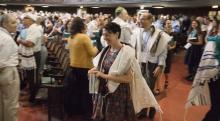
At a synagogue in Charleston, S.C., more than 20 years ago, teenager Rachel Nussbaum began wrapping tefillin — two black boxes attached to leather straps that Jewish men wear as they pray.
To the older Jewish men gathered for morning prayers, the sight of a woman decked out like a man at prayer was shocking. Many didn’t know what to make of Nussbaum’s brazen willingness to break with tradition.
Now 38, and a rabbi, Nussbaum leads The Kavana Cooperative, a growing Jewish prayer community in Seattle that has much in common with a synagogue but doesn’t call itself one.
Like the tefillin-wrapping teenage Nussbaum, Kavana prides itself on a reputation for doing Judaism its own way.
PEJORATIVE COMMENTS about racial and ethnic minorities, GLBTQI people, and the poor appropriately receive public censure. But say something negative about Pharisees, and the response is likely to be a hearty “amen.”
When anti-Pharisaic comments appear, especially from church pulpits or Christian magazines, few complain. And when correctives are suggested, the responses are usually something like, “Of course not all Pharisees were money-loving, sanctimonious hypocrites.” The comparison to other bigoted comments—“Of course not all Latinos are illegal; of course not all African Americans are lazy”—should tell us how insufficient the excuses are.
Just as we are heirs of centuries of racism, we are heirs of two millennia of negative stereotypes of Pharisees and, by extension, of Jews—for it is substantially from Pharisaic teaching that rabbinic Judaism springs. Whenever sermons and Bible studies proclaim that Jesus’ views concerning social justice are contrary to Jewish views grounded in Pharisaic teaching, they promote bad history and bad theology.
The pastors and priests who make such comments are not anti-Semites. Even Pope Francis, who is certainly no bigot, speaks of Pharisees as “Closed-minded men, men who are so attached to the laws, to the letter of the law, that they were always closing the doorway to hope, love, and salvation.” Rather, these interpreters are unaware of the history of the Pharisees and unaware as well of how these claims about Pharisees often bleed over into anti-Jewish invective.

STUN GRENADES AND tear gas bombs exploded in the street outside of Bethlehem Bible College, forcing Rev. Alex Awad to end his class early. Down the block, youth threw stones at the Israeli separation wall that cuts deep into Bethlehem. Frequent clashes had erupted in the months since the Israeli offensive known as Operation Protective Edge killed more than 2,200 Palestinians in Gaza, most of them civilians. During that operation, 66 Israeli soldiers and seven civilians were killed by Gaza militants. In the months that followed, Jerusalem became the focal point of further violence.
“Many people ask, what are signs of hope?” says Awad. While the facts on the ground get worse, he names one encouraging trend: “Many evangelicals are moving from the Israeli side into what I think is the peace and justice side.”
Here are seven signs that he’s right:
1. Evangelicals are listening to Palestinian Christian voices. Jerusalem-born with a degree from a U.S. Bible college, Awad is uniquely suited to speak to evangelicals—including some unlikely guests. John Hagee, leader of Christians United for Israel, the U.S.’s largest Christian Zionist organization, arranged for five tour groups to visit Bethlehem Bible College. The first group arrived last August.